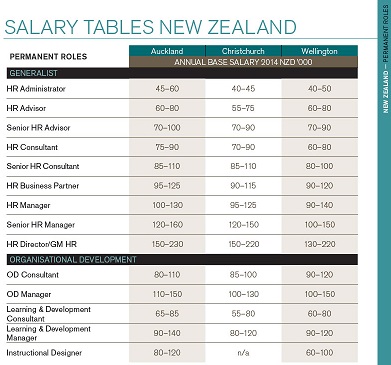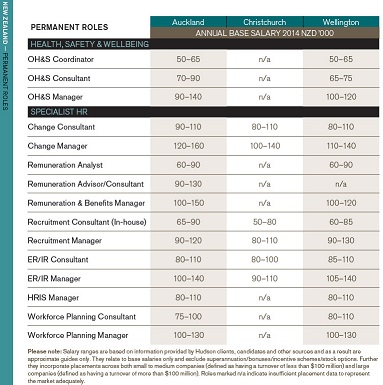2014 is shaping up to be a mixed bag for the HR profession according to Hudson’s Human Resources Salary & Employment Insights 2014 guide. The report shows depending on location things are either looking up, going down or remaining stagnant.
Key findings from the report reveal:
- All-rounders are in demand. HR generalists familiar with HRIS software and payroll have multiple job options with a strong hiring appetite for these roles in Auckland, Wellington, Canberra, South and Western Australia. In Christchurch the report states there is a demand for generalists with proven experience in performance management and employee and industrial relations.
- Senior practitioners are sitting tight due to a lack of opportunities in the market in Auckland, Christchurch, Melbourne, Newcastle, South Australia and Sydney.
- Contractors are in demand. Where organisations have cut back their HR teams some are now bringing in contractors to ease the workload without increasing headcount. Hudson NZ Executive General Manager, Roman Rogers, told HRM Online that one in four HR employers said they use contractors more than a year ago. Demand for fixed long-term contractors is increasing in Christchurch and Melbourne while in Wellington fixed-term contracts are decreasing.
HR analytics was identified by the report as an emerging skill set for HR professionals to develop. Rogers said that businesses want to measure the value and return on investment of individual roles; identify and manage leaders to drive performance; and manage risk; and are looking to HR to analyse this.
“As a result, HR and ICT functions are increasingly working together to provide this analysis. Common metrics being measured include engagement, performance, attrition/retention, headcount, diversity, and compensation. The next step is to encourage HR practitioners to see analytics as tools for proactive planning,” Rogers explained.
Another key finding from the research was a demand for workforce planners. Rogers attributes this to organisations looking to refocus and refresh after a broad amount of large-scale internal change in the past 12 months (61.9% of NZ organisations performed large-scale internal change program in 2013). Workforce planners with “exceptional stakeholder and with exceptional stakeholder and communication skills sets” would be particularly in demand as a result of this Rogers added.
“Workforce planners, who can synthesise corporate objectives and create a data platform to directly map workforce options, will be key to the future success within organisations,” he said.
In terms of salary Rogers said the findings showed salaries had not risen much in the past year with most respondents to the research stating salaries had gone up by two to three per cent. The report anticipates similar salary increases for 2014 in both New Zealand and Australia.
The report also warns that changing jobs won’t necessarily equate to higher salaries. It states than in Christchurch, Wellington, Melbourne, Queensland and South Australia candidates changing jobs are not receiving significant increments. While in Sydney there is a downward pressure on salaries due to an oversupply of candidates.
For further salary information see the tables below from the Human Resources Salary & Employment Insights 2014 guide




